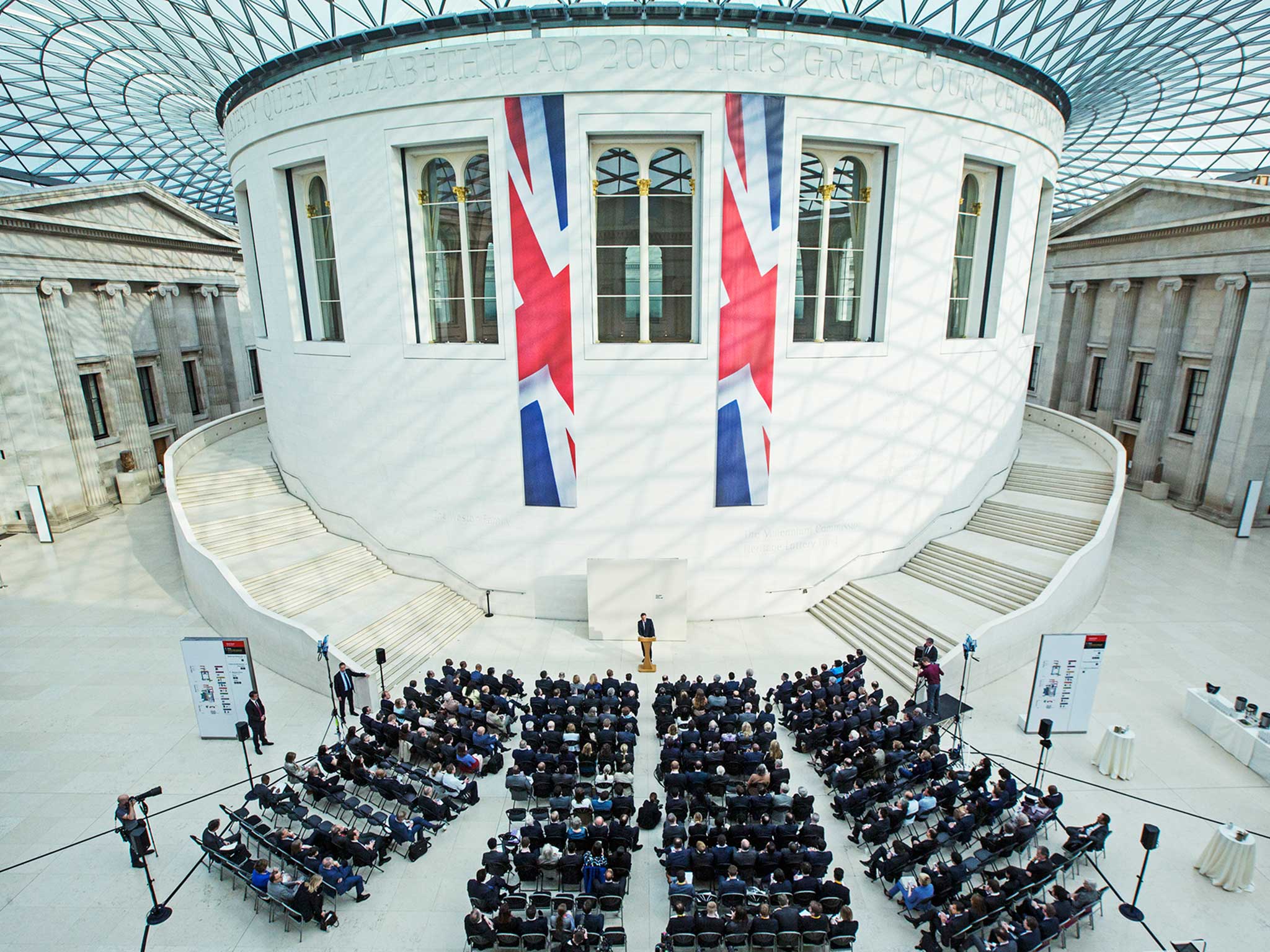Why David Cameron's speech on the EU referendum showed he's the wrong man to lead the Remain campaign
David Cameron's positive defence of the EU could have been a turning point in the referendum debate. Too bad Downing Street chose to brief journalists on the single section of the speech guaranteed to produce doom-laden headlines

It was inevitable that someone prominent in the EU debate would eventually ignore Basil Fawlty’s advice. All those falling over themselves with outrage that David Cameron has dared mention the war, while suggesting that leaving the EU would make another one more likely, should read the entire speech.
In it, he sets out what is actually a rather grand vision of Britain’s past, present and future as a leading European nation – bound to its neighbours, willing to work with them, but not afraid to lead them when necessary. Read in full, the speech has as much of 'Project Hope' as it does 'Project Fear' – and how refreshing that is in this EU debate.
Because Project Fear – while often devastatingly effective – is not always enough.
Look at London. Zac Goldsmith’s campaign to be mayor will go down in political history for its negativity – and it lost, resoundingly so. An attempt to spook people into voting against Sadiq Khan failed for numerous reasons, but, broadly speaking, it didn't take off because voters aren’t stupid. They resent being treated by politicians like children who can be frightened by bogeymen.
The EU referendum debate is different, and the London campaign, with its ugly undertones of Islamophobia, is not entirely instructive. While the hinted dangers of Sadiq Khan in City Hall were illusions, the ramifications of leaving the EU are real and substantial. So it would have been foolish in the extreme for the In campaign not to strongly warn about the economic risks. Nor should we delude ourselves that one of the world’s most powerful countries parting company with the world’s wealthiest economic alliance will do anything other than breed global instability.
And yet, the polls and the experience of campaigners on the doorstep, point to one thing – people are not yet convinced. Many feel slightly patronised. They want to know what Brexit might mean, but crucially, they want to hear a case for staying in the EU, not just the case for not leaving it.
Which is why they should read Cameron’s speech in full – and why it is a terrible shame that Downing Street chose, on Sunday, to brief journalists on the single section of it that was guaranteed to produce doom-laden headlines in Monday’s news bulletins.
The full speech is not merely a prediction of how awful things might become if we leave the EU, but a celebration of how fine a job we and our European neighbours have done, rebuilding a continent together from the ashes of 1945. It was, in a way, reminiscent of another political speech that invoked the image of British soldiers lying in European war graves: Gordon Brown’s thunderous intervention in the Scottish Independence debate two years ago.
Both contained a nuanced vision of countries whose proud independence and unique qualities are not diminished by close friendship with powerful neighbours, but enhanced by it. But while Brown’s passionate speech is still remembered as a turning point in that campaign, the way Cameron’s own intervention has been mishandled means it will be seen as a mere continuation of 'Project Fear'.
The other thing Brown’s speech had which Cameron’s (mostly) lacked – and which, in these heady days of early summer, might start to count for more and more – was the kind of political poetry that inspires people. Compare and contrast. From Brown’s speech: “What we have built together by sacrificing and sharing, let no narrow nationalism split asunder ever”. And from Cameron’s: “Today I want to set out the big, bold, patriotic case for Britain to remain a member of the EU.” Yawn.
In fairness to Cameron and his speechwriters, there was also some quite stirring stuff about Churchill, Spitfires, the rebuilding of Europe, and the liberation of the Eastern bloc from Soviet tyranny. If people are to be persuaded to go out and vote In, they will need more of this.
Yes, the risks of leaving are great; that is a fair message. But it’s an unpalatable one for many a patriotic Brit to swallow. If they are going to guarantee a vote to Remain, Downing Street need to have more confidence in their positive vision of Britain in Europe.
Which begs the question: is David Cameron really the right man to win this vote for Remain? For a man who only a few months ago was sitting on the fence, saying we would be perfectly alright inside outside the EU, the stronger the case he makes for the EU, the more of a hypocrite he appears.
Hindsight is a wonderful thing, but the risk is that by failing to do the statesmanlike thing and back the EU from the beginning, Cameron sacrificed his credibility in the eyes of those wavering voters, waiting to be inspired.
Join our commenting forum
Join thought-provoking conversations, follow other Independent readers and see their replies
Comments
Bookmark popover
Removed from bookmarks